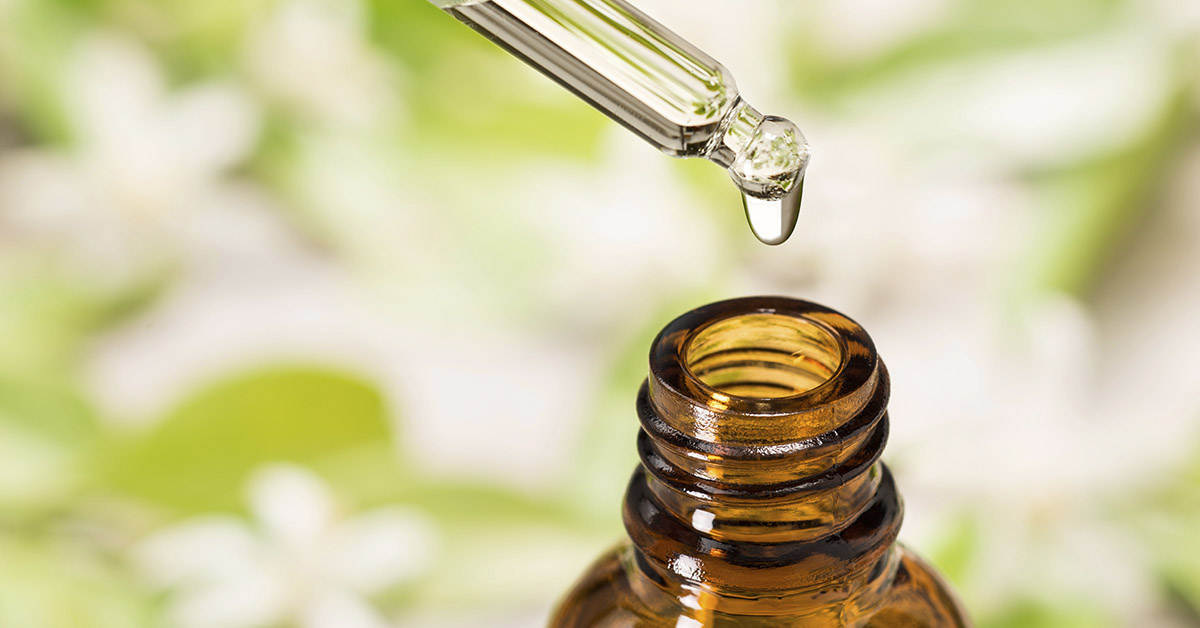According to several studies, essential oils may help with seasonal allergies. Also called “hay fever” or seasonal allergic rhinitis, allergies can flare up during certain times of the year, namely when plants begin to release pollen particles into the air. Symptoms often include sneezing, a stuffy nose, watery eyes, and itchiness, depending on the person. Some people might experience allergies occasionally depending on their circumstances, while others stay sick throughout the season. Fortunately, essential oils can be used as an alternative or alongside other allergy treatments.
What are Essential Oils?
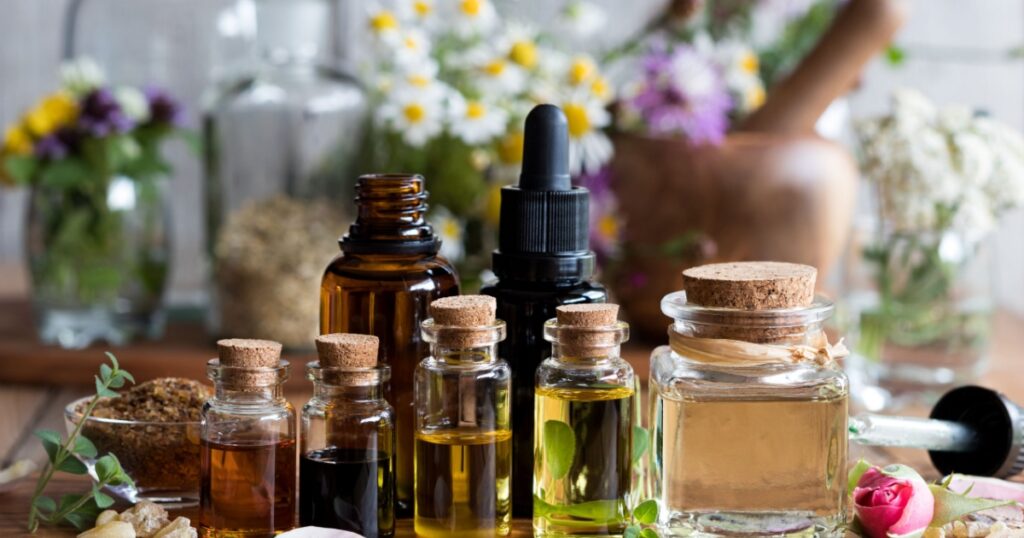
In short, essential oils are concentrated plant extracts. They are made through processing parts of a plant — whether it’s the bark, flowers, leaves, or fruit — keeping the compounds that make fragrance. Because essential oils are so condensed, they require many pounds of plant to fill a single bottle. This is part of the reason why essential oils are so expensive. But they are more than just a fragrance; essential oils can provide health benefits. [1]
Read More: 21 of the Best Natural Oils for Your Skin and Hair (Benefits and How to Use)
One of the prime uses of essential oils is aromatherapy

It’s a form of complementary medicine involving smelling the oils, since the scent can stimulate and impact other parts of the body. Although some people claim essential oils can help health almost any ailment, there’s not much research to support these claims. However, studies have shown that they could help conditions like insomnia, depression, anxiety, and nausea. Essential oils and their potential benefits are being more thoroughly researched. However, there is already evidence that they could alleviate allergy symptoms, and there are several ways to do so. [2]
Here’s How!
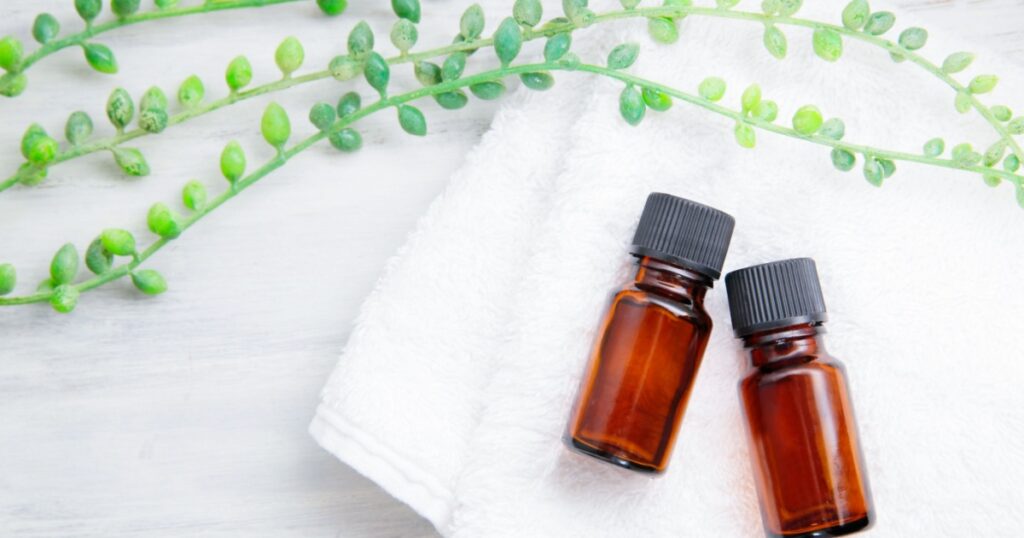
- Diffuser: Add a few drops of oil to a diffuser or oil burner to help with the symptoms of allergies and respiratory issues.
- Direct inhalation: Smell the oil directly from the bottle, or from a few drops on a handkerchief or pillow. People could also add a few drops into a bowl of hot water and inhale the vapors.
- Topically: People with skin allergies like hives and rashes could apply the oil topically, but they must dilute it first. Mix five drops of essential oil with one ounce of carrier oil — like olive oil, coconut, or sweet almond oil — before applying it to your skin. Even then, it’s always best to do a patch test before applying over large areas.
6 Essential Oils for Allergies

Essential oils can offer a natural and holistic approach to managing allergy symptoms. With their anti-inflammatory, antihistamine, and decongestant properties, these oils can provide relief from common allergic reactions such as sneezing, congestion, itching, and headaches. Incorporating essential oils into your routine through inhalation, topical application, or diffusion can help alleviate discomfort and improve your overall well-being. Here are six essential oils known for their effectiveness in supporting allergy relief:
Eucalyptus
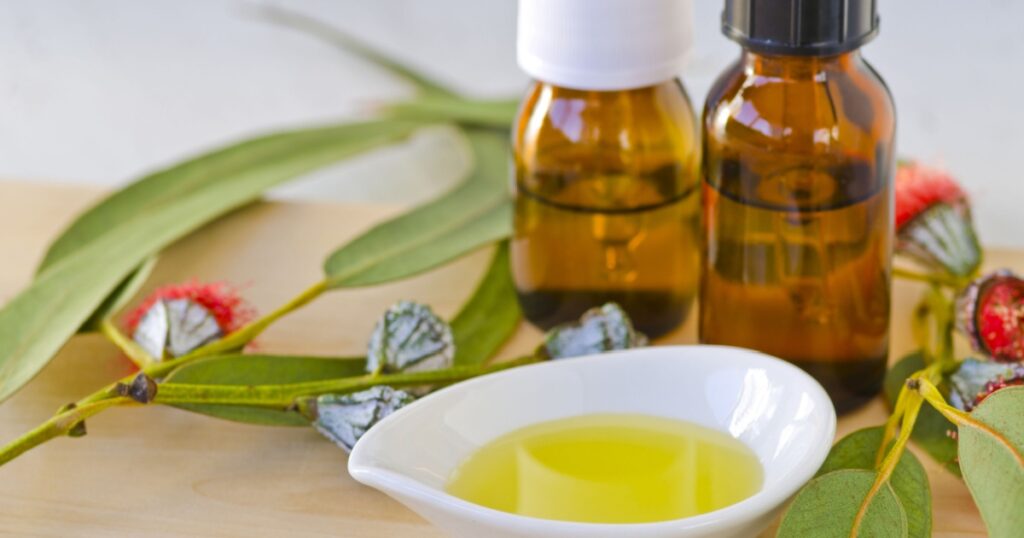
Eucalyptus oil is known for its anti-inflammatory properties, which may ease congestion. It also provides a cooling sensation when breathing it in, which can help feel relief from allergy symptoms. Research has found that a blend of oils including eucalyptus can improve symptoms like coughs, sore throats, and hoarseness. Breathe it in from the bottle or place it in a diffuser. However, although eucalyptus is an anti-inflammatory, it can also give people allergic reactions, so exercise caution. [3]
Read More: 7 Potential Benefits and Uses of Oregano Oil
Lavender
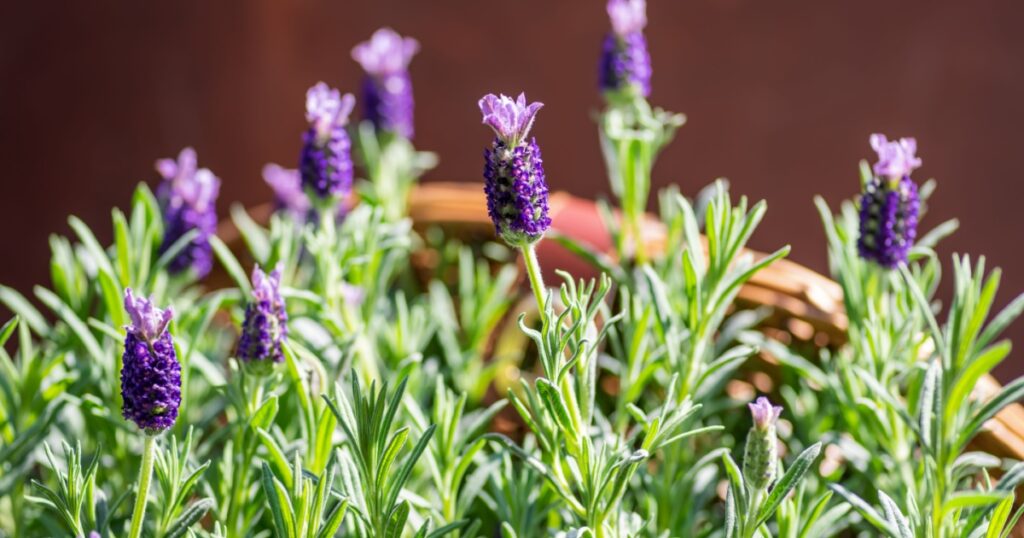
Lavender is one of the most popular essential oils because of its sweet fragrance and many potential benefits. It’s often used to calm and reduce inflammation, so it may help soothe allergy symptoms. One study found that lavender essential oil can prevent allergic inflammation and stop mucous cells from enlarging. Use in a diffuser, or dilute a few drops with a carrier oil and add it into a bath. When diluted and applied topically, it could help reduce skin irritation.
Tea tree oil
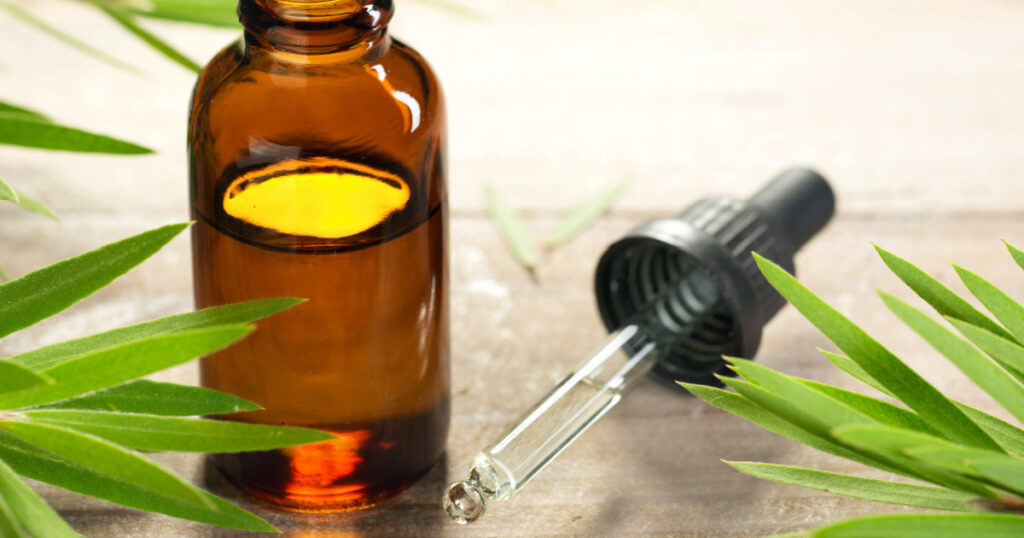
Tea tree oil, like eucalyptus oil, is a well-known anti-inflammatory. But it also has antifungal, antiviral, and antibacterial properties. When diluted and applied topically, it can decrease skin irritations. But also like eucalyptus, can cause an allergic reaction and should be used only after a successful skin patch test.
Lemon
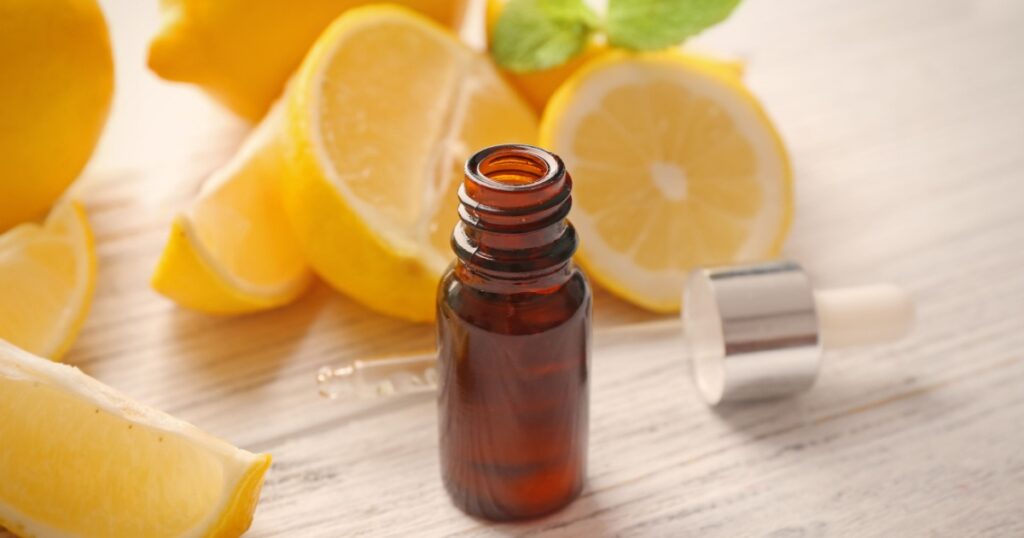
Citrus essential oils are a favorite in aromatherapy. Aside from its pleasant scent, it can help boost energy and alertness. In this case, it could also help clear sinuses, lessen congestion, and even inhibit bacterial activity. Place a few drops in a diffuser or dilute it and apply to the skin. However, be careful to avoid exposing skin with citrus oil to sunlight and tanning beds; it could lead to burns and blisters as it increases photosensitivity.
Peppermint
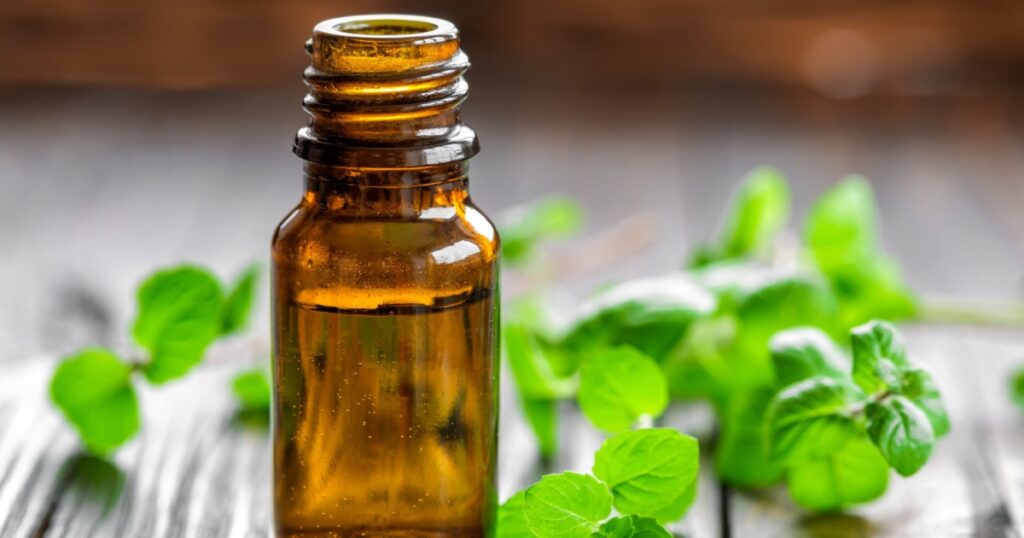
Peppermint essential oil can reduce inflammation, either through inhaling the fragrance or by diluting it with a carrier oil and applying it to the skin. The oil can create a cooling effect when used topically. It could also be paired with lavender and lemon oils for an allergy-relief combo. Peppermint oil can also help relax some muscles, according to one study, so it may reduce the contractions that lead to coughing. Other research suggests this essential oil could help alleviate the mental fatigue felt by those suffering from allergies.
Read More: 12 Reasons This Oil Is Called ‘Liquid Gold’: From Heart Health to Stretch Mark Prevention
Frankincense

Frankincense can reduce inflammation in the body, particularly when it comes to respiratory issues. One study found that frankincense had anti-inflammatory effects on sinus infections and bronchitis (which is caused by inflammation in the airways.) It can potentially also help symptoms of asthma as well as seasonal allergies.
Chamomile oil

One review found that chamomile oil can effectively reduce inflammation when it comes to skin conditions and sinusitis, which is caused by inflammation and swelling in the sinuses. It could also help relieve itching and swelling that comes with eczema when mixed with a carrier oil and applied topically. For sinus relief, use a diffuser or smell directly from the container. [4]
The Potential Health Risks
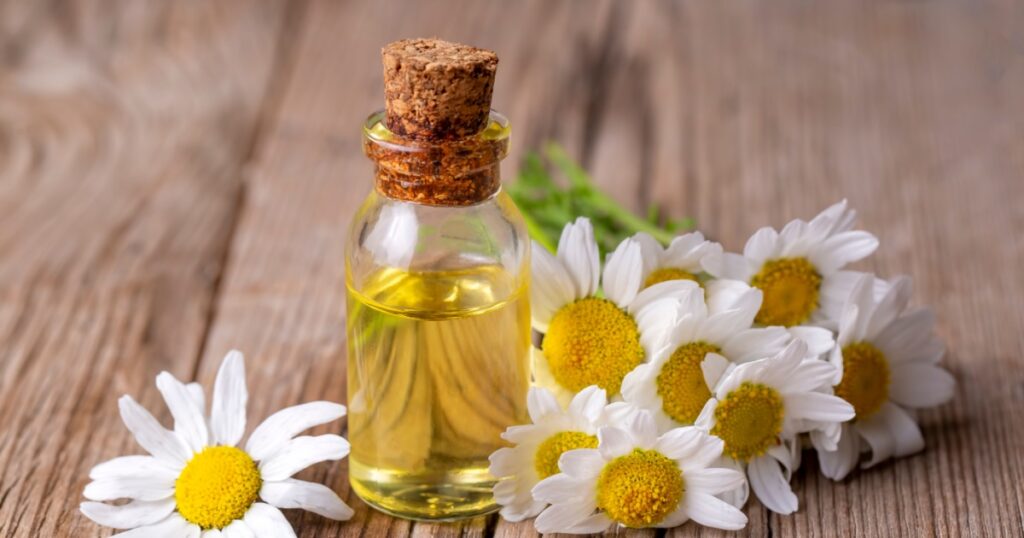
Being natural does not equal being safe and free of precautions. Using essential oils for allergies and other ailments comes with risks. It’s recommended to consult a doctor before using any essential oils and use them cautiously. Some oils could worsen allergies or cause an allergic reaction. Do a skin test before applying diluted oil to larger patches of skin; if there’s no reaction after 24 hours, the oil is safe to use. Be sure to test each oil separately. Essential oils are not regulated by the U.S. Food and Drug Administration (FDA), so there are no overseers on these products’ purity and quality. Therefore, it’s imperative to find reputable essential oils that are high-quality with no fillers. Never ingest essential oils and don’t use them around pregnant and breastfeeding women as well as young children and pets, unless directed by a qualified professional.
Read More: Tea tree oil is far more useful than you think. Here are 10 reasons why you need it at home
Sources
- “Aromatherapy: Do Essential Oils Really Work?” John Hopkins Medicine.
- “Effect of Inhalation of Aromatherapy Oil on Patients with Perennial Allergic Rhinitis: A Randomized Controlled Trial.” Evidence Based Complementary Alternative Medicine. Seo Yeon Choi and Kyungsook Park. March 13, 2016
- “Essential Oils for Allergies.” Healthline. May 20, 2019
- “What are the best essential oils for allergies?” Medical News Today. Jayne Leonard. December 2, 2017
